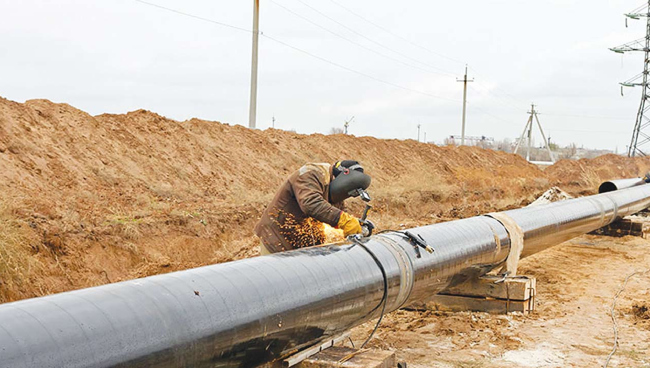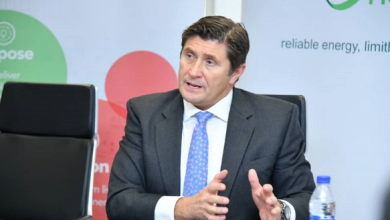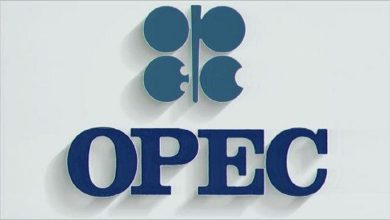Business
NNPCL achieves 100% pipeline availability, crude oil production hits 1.7mb/d

The Nigerian National Petroleum Company Limited (NNPCL) on Tuesday announced a significant breakthrough in its $2.8 billion Ajaokuta-Kaduna-Kano (AKK) gas pipeline project.
Contractors have successfully crossed the River Niger, marking a critical milestone in the project.
The feat was announced in a statement by the oil firm on its verified handle on X.
The Ajaokuta-Kaduna-Kano Gas Pipeline is a 40-inch by 614km linear pipeline system running from Ajaokuta in Kogi State to Kano with associated intermediate, terminal gas facilities and other related equipment to transport natural gas to off-takers at Abuja.
It is a flagship project aimed at enhancing domestic gas utilisation, improving power generation, and creating new industrial corridors.
Crossing the River Niger is a critical milestone that had previously posed significant technical and commercial challenges to the ongoing project.
The Group Chief Executive Officer of the NNPCL, Bayo Ojulari, also confirmed the development while speaking at the ongoing Nigeria Oil and Gas Energy Week Conference on Tuesday in Abuja.
His keynote address marks his first to industry leaders and participants since President Bola Tinubu appointed him as NNPCL GCEO.
The event is themed, “Accelerating Global Energy Progress Through Investment, Partnerships & Innovation”.
Last month, the Nigerian National Petroleum Company Limited said the AKK project was over 70 per cent completed.
But addressing industry stakeholders and participants, the NNPCL GCEO said the company has surmounted the biggest challenge to the project activation.
He added that the pipeline would be completed before the end of the year, adding that it would deliver gas to multiple markets across the country and support long-awaited industrial growth in northern Nigeria.
“We all know the story of the AKK. I don’t need to start talking about it. But one of the biggest challenges that the project has faced was the ability to cross the river Niger.
“So there are tough technical challenges. The team of NNPCL has had to work with the contractors to bring in specialist capability that was not available, and very difficult commercial rearrangements.
“Ladies and gentlemen, I want to announce to you today that we have crossed the River Niger.
“Now we are honoured by the grace of God, before the end of the year, to complete the pipeline connections and begin the connections and all of that, and feed all the markets that we need to feed along the lines with the economic development impact that we all expect, ”Ojulari said.
He also announced a full recovery in pipeline infrastructure security and capacity across the country.
According to him, as of June 29, 2025, the country had achieved 100 per cent pipeline availability.
A feat he described as “previously unthinkable” given the long history of sabotage and vandalism in the sector.
“For years, whenever we gathered at this event, we lamented the insecurity around our pipeline network and its impact on crude oil production.
”But I am pleased to share with you today that, through collective efforts of the federal government, regulatory bodies, the military, and the industry, we have 100 per cent pipeline availability today,” Ojulari said.
He however, noted that while pipeline access was no longer a constraint, the country’s oil production levels remained below potential.
“As of last month, we averaged 1.35 million barrels per day in crude production, and with condensates, it came to about 1.6mbpd. So now that the pipelines are available, the question becomes: where is the production?”
Ojulari attributed the suboptimal output to years of underinvestment, warning that Nigeria must urgently attract new capital into the oil and gas sector to take full advantage of the restored infrastructure and favourable market dynamics.
Ojulari therefore emphasised the need for new investments to raise production levels, citing years of underinvestment as a major constraint.
“We have solved the infrastructure bottleneck; now we need investments to raise production. The stars are beginning to align, and this is the time to act,” he said.



